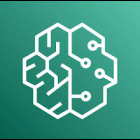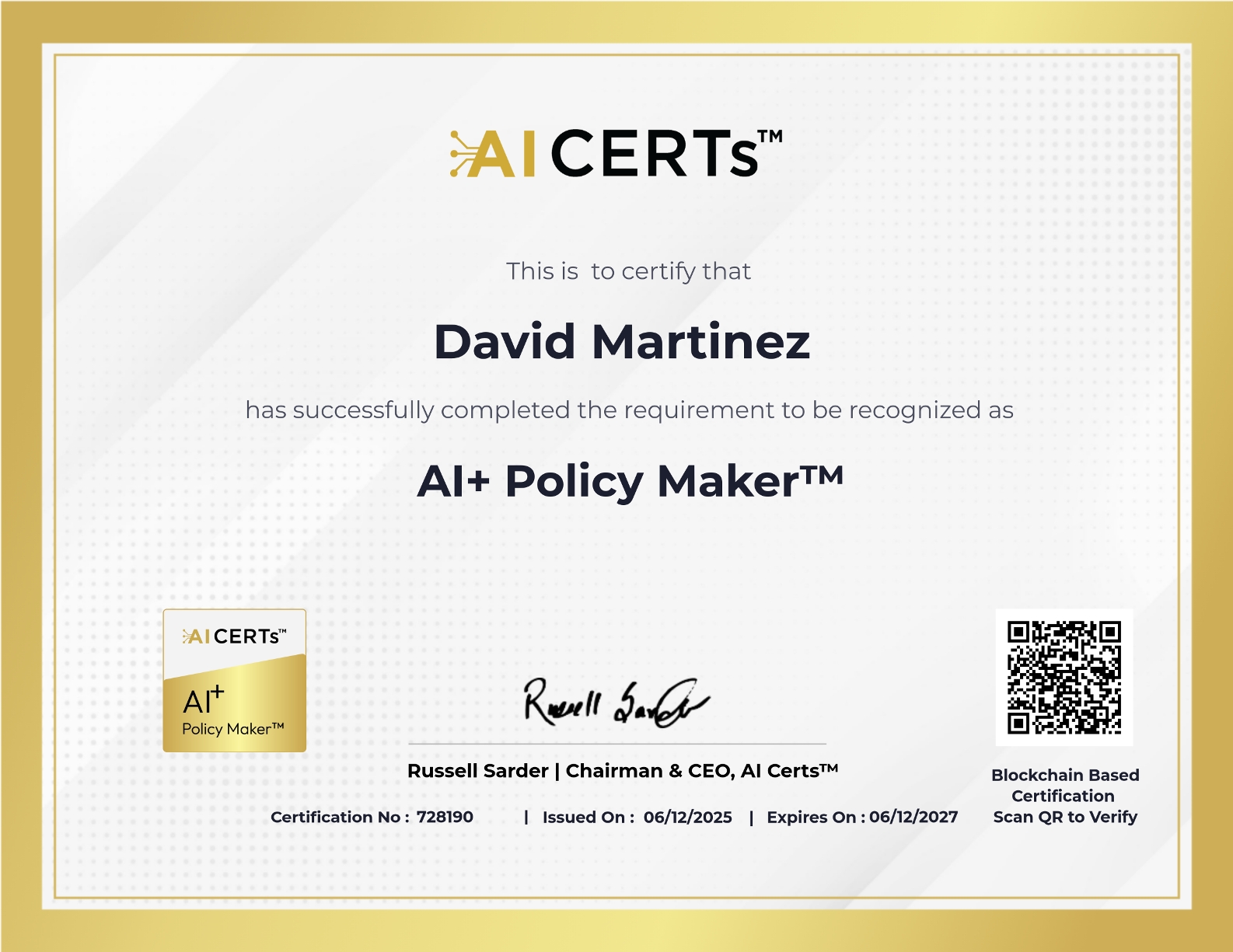Home » All Certifications » Specialization » AI+ Policy Maker™
$195.00
| Modules | Percentage |
|---|---|
| Introduction to Artificial Intelligence | 10 |
| AI in Governance and Public Policy | 13 |
| Ethical, Social, Human Rights Implication of AI | 13 |
| Legal and Regulatory Frameworks for AI | 13 |
| AI Risk Management and Security | 13 |
| Economic Impacts of AI | 13 |
| AI Strategy, Implementation and Collaboration | 13 |
| Shaping the Future of AI Policy | 12 |




Showcase your expertise to potential employers and professional connections.
Your certificate is secured on the blockchain for tamper-proof authenticity and can be downloaded as a high-quality PDF for personal records or professional sharing.
Celebrate your accomplishment with your network on all social platforms.




Shape AI governance frameworks, providing strategic insights to ensure ethical AI implementation in policy-making.
Analyze and design policies to regulate AI technologies, addressing societal, economic, and legal concerns.
Oversee the development and enforcement of policies to protect data privacy in AI systems.
Conduct research on the impact of AI technologies and help shape effective public policies for AI development and implementation.
